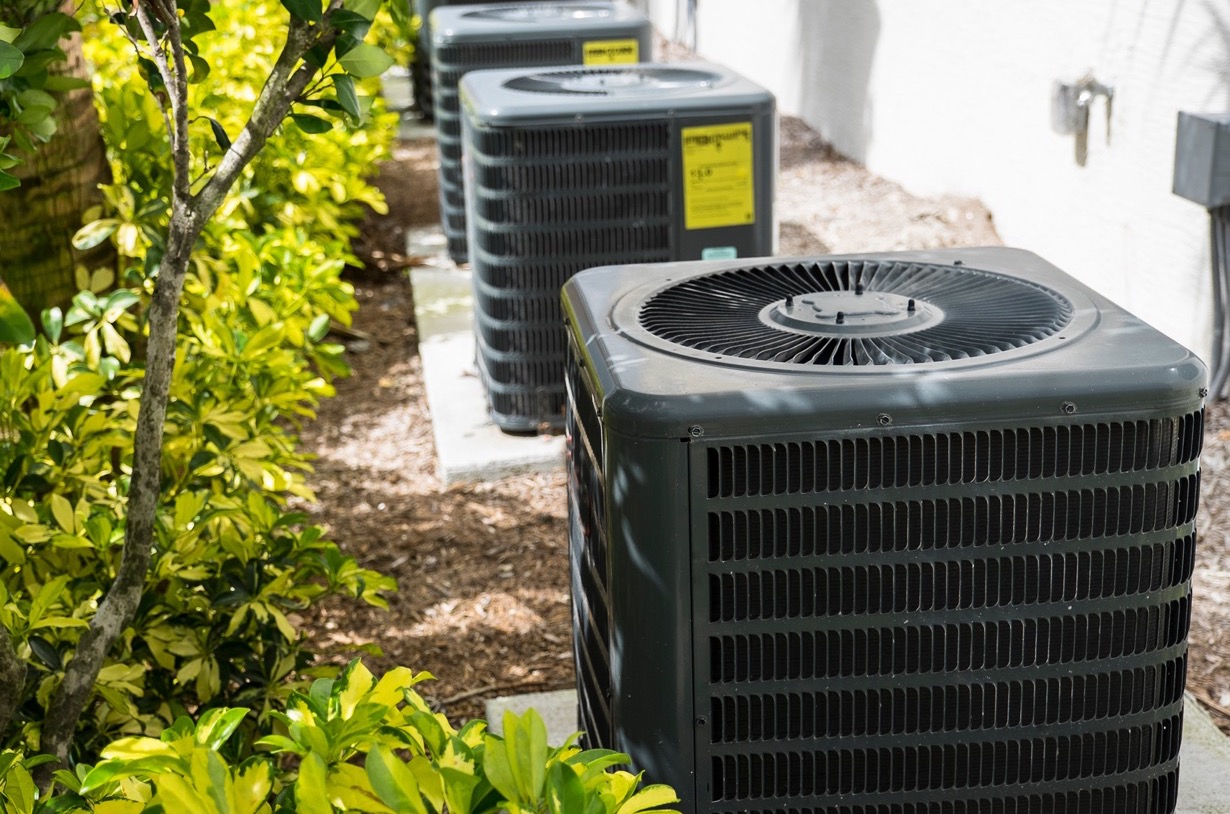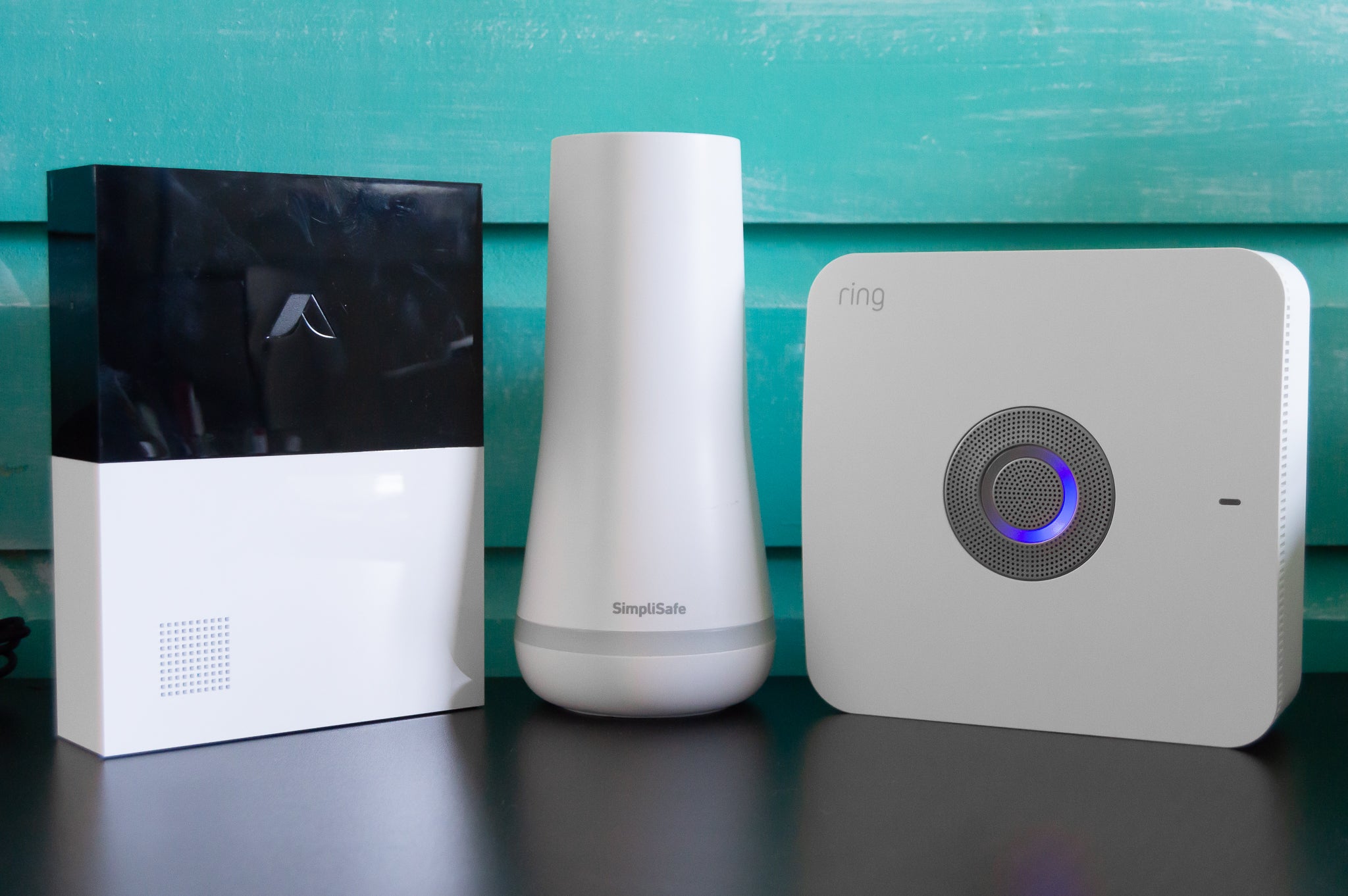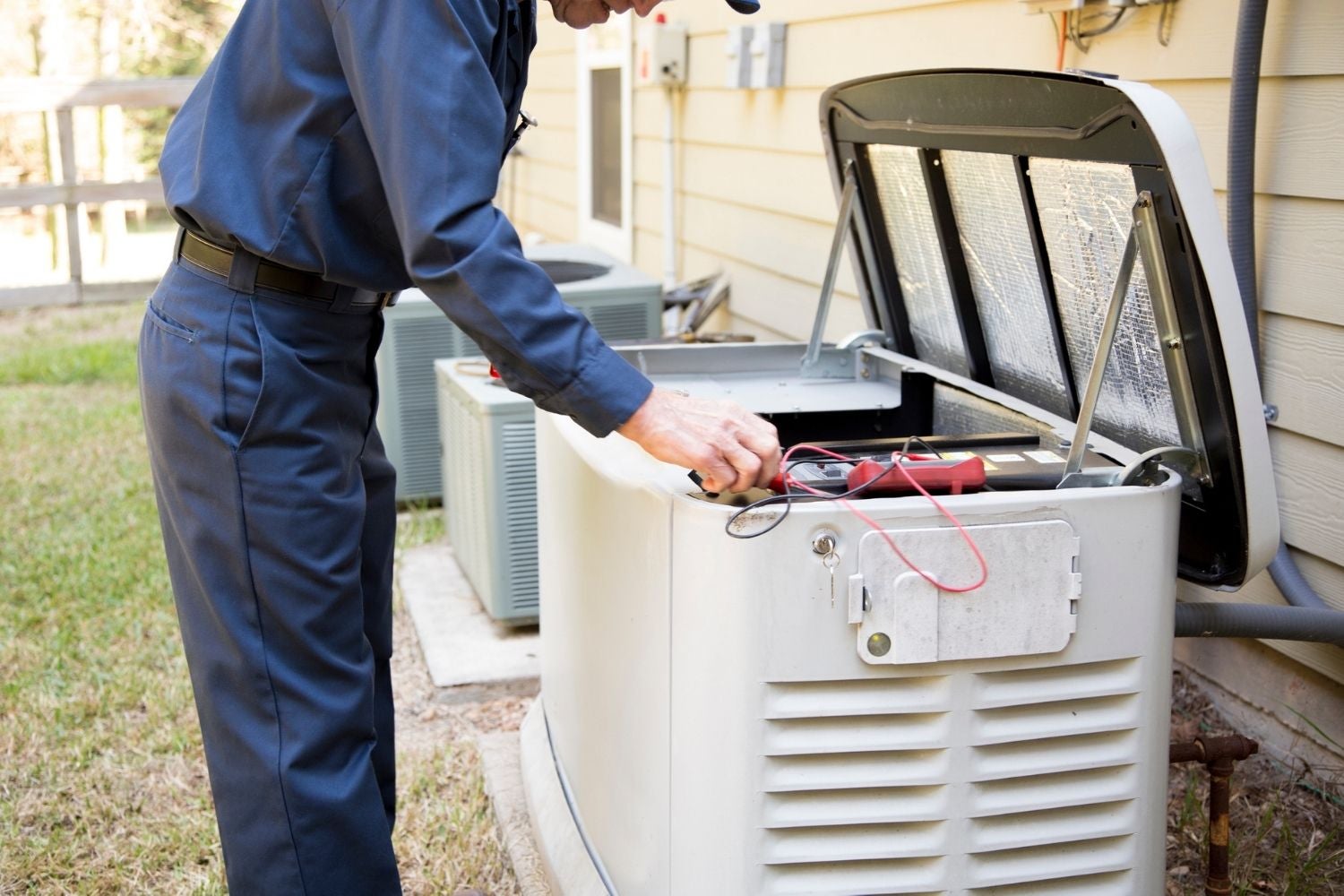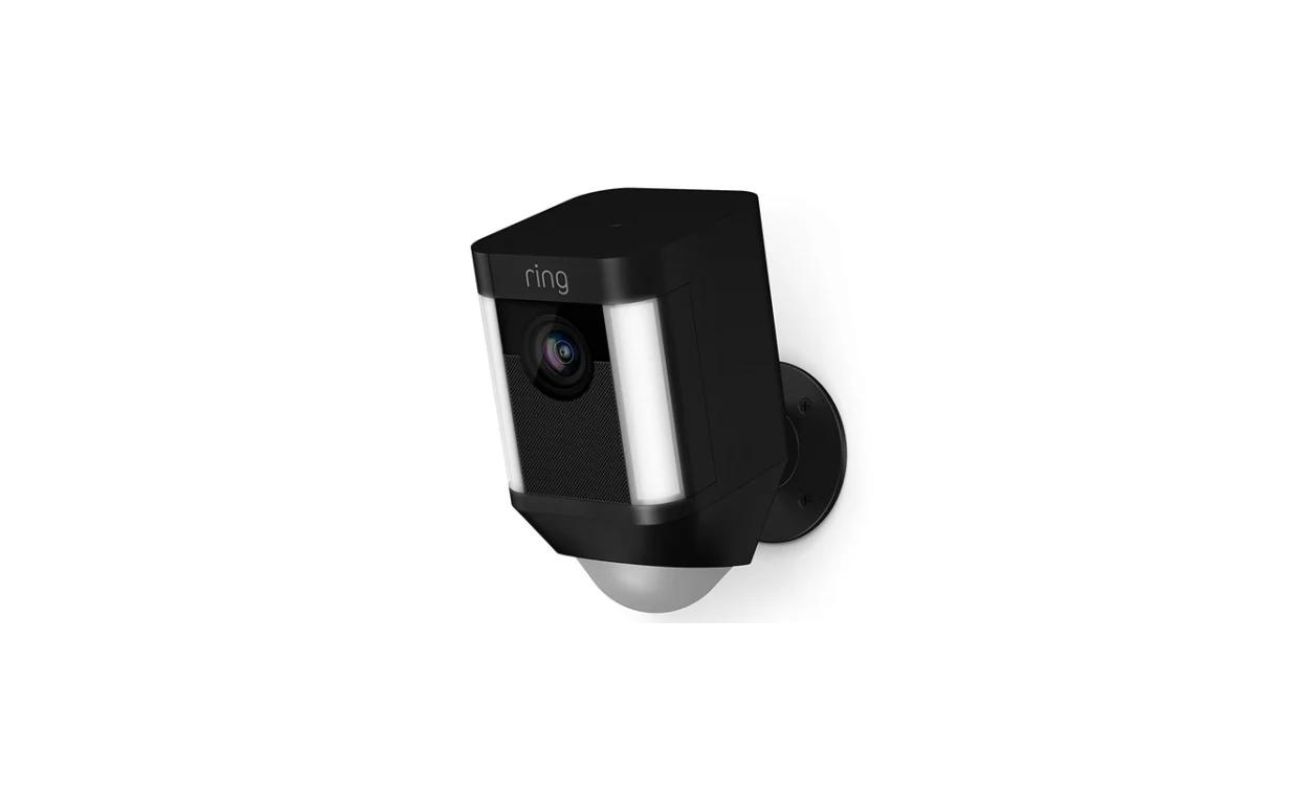

Articles
Which HVAC System Has The Best Warranty
Modified: October 27, 2024
Find out which HVAC system offers the best warranty for homeowners. Our articles provide valuable information and insights on warranty options to help you make an informed decision.
(Many of the links in this article redirect to a specific reviewed product. Your purchase of these products through affiliate links helps to generate commission for Storables.com, at no extra cost. Learn more)
Introduction
When it comes to investing in a new HVAC (heating, ventilation, and air conditioning) system, one of the key factors to consider is the warranty. A warranty is a guarantee provided by the manufacturer that protects the purchaser against any defects or malfunctions in the system.
An HVAC system is a significant investment for any home or business owner, and having a comprehensive warranty can provide peace of mind and financial security. But with so many options available in the market, it can be overwhelming to determine which HVAC system has the best warranty.
In this article, we will explore the importance of warranty for HVAC systems, discuss the factors to consider when evaluating HVAC system warranties, compare the warranties offered by different HVAC system brands, and provide recommendations for choosing a system with the best warranty.
Whether you are in the market for a new HVAC system or simply curious about warranty options, this article will provide valuable insights and actionable tips to help you make an informed decision.
Key Takeaways:
- A comprehensive warranty for your HVAC system offers financial protection, extended lifespan, and enhanced customer satisfaction, making it a crucial factor to consider when making your purchase.
- When evaluating HVAC system warranties, consider the duration, coverage of key components, transferability, exclusions, required maintenance, and the reputation of the manufacturer to ensure you choose the best warranty for your needs.
Read more: How Long Are HVAC Warranties
Overview of HVAC Systems
HVAC systems are essential for maintaining a comfortable indoor environment by regulating temperature, humidity, and air quality. They include various components such as furnaces, air conditioners, heat pumps, ventilation systems, and thermostats, working together to provide heating, cooling, and proper airflow.
In residential settings, HVAC systems are commonly found in single-family homes, apartments, and condominiums. Commercial buildings, such as office spaces, retail stores, and hospitals, also heavily rely on HVAC systems to ensure a comfortable and healthy working environment for occupants.
HVAC systems can be classified into different types based on their functionality and energy sources. The most common types include:
- Centralized HVAC Systems: These systems consist of a central unit that generates heated or cooled air and distributes it through ducts to various rooms or zones in a building.
- Split HVAC Systems: Split systems have separate indoor and outdoor components. The indoor unit includes the evaporator coil and blower, while the outdoor unit houses the compressor and condenser coil.
- Ductless Mini-Split Systems: These systems do not require ductwork and are ideal for heating or cooling individual rooms. They consist of an outdoor unit connected to multiple indoor units.
- Heat Pumps: Heat pumps are versatile systems that can both heat and cool a space by extracting heat from outdoor air (for cooling) or from the ground or water (for heating).
Each type of HVAC system has its own advantages and considerations. Factors such as energy efficiency, cost, available space, and specific needs of the property should be evaluated when choosing the right system.
Now that we have a general understanding of HVAC systems, let’s delve into the importance of warranty when purchasing an HVAC system in the next section.
Importance of Warranty for HVAC Systems
When investing in an HVAC system, it is crucial to consider the warranty that comes with it. A warranty serves as a form of protection for the purchaser, giving them confidence in the quality and reliability of the system they are purchasing. Here are some key reasons why the warranty is important for HVAC systems:
1. Financial Protection
An HVAC system is a significant investment, and any repairs or replacements can be costly. A comprehensive warranty ensures that if any issues arise during the specified warranty period, the manufacturer will cover the repair or replacement costs. This financial protection can save you from unexpected expenses and provide peace of mind knowing that you are protected against defects or malfunctions.
2. Extended Lifespan
An HVAC system with a solid warranty is likely to have undergone thorough testing and quality control. A manufacturer is more likely to offer a generous warranty if they have confidence in the durability and longevity of their product. By choosing a system with a good warranty, you can have assurance that the system was built to last and will provide optimal performance for an extended period.
3. Enhanced Customer Satisfaction
A comprehensive warranty demonstrates the manufacturer’s commitment to customer satisfaction. By offering a warranty, the manufacturer is assuring customers that they will stand behind their product and provide support in case of any issues. This level of assurance can greatly enhance the overall customer experience and satisfaction with the HVAC system.
4. Higher Resale Value
If you plan to sell your property in the future, having a valid warranty for your HVAC system can significantly increase its resale value. Prospective buyers will appreciate the peace of mind that comes with knowing they are protected against potential HVAC system issues. A reliable warranty can make your property more attractive in the competitive real estate market.
5. Confidence in Quality
A warranty is a testament to the manufacturer’s belief in the quality and reliability of their product. By offering a warranty, they are assuring customers that they have designed and manufactured a superior HVAC system. Choosing a system with a strong warranty gives you confidence that you are investing in a high-quality product that will perform optimally and meet your heating and cooling needs.
Now that we understand the importance of warranty for HVAC systems, let’s explore the key factors to consider when evaluating HVAC system warranties in the next section.
Factors to Consider When Evaluating HVAC System Warranties
When evaluating warranties for HVAC systems, it’s important to consider several key factors. These factors will help you determine the extent of coverage and the level of protection you will receive. Here are some factors to consider when evaluating HVAC system warranties:
Read more: What Is The Best Vacuum Pump For HVAC
1. Duration of the Warranty
The duration of the warranty is a crucial factor to consider. HVAC system warranties typically range from 5 to 10 years, although some manufacturers offer even longer coverage. A longer warranty period provides more extended protection and peace of mind.
2. Types of Covered Components
Review the warranty to determine which components of the HVAC system are covered. Most warranties cover the core components such as the compressor, heat exchanger, and condenser coil. Some warranties also include coverage for other parts, including motors, control boards, and thermostats. Ensure that the warranty covers the components that are most prone to failure.
3. Exclusions and Limitations
Take note of any exclusions or limitations mentioned in the warranty. Some warranties may exclude certain types of damage or malfunctions, such as damage caused by improper installation or maintenance. It’s important to fully understand these exclusions to avoid any potential issues with claiming warranty coverage in the future.
4. Transferability
Consider whether the warranty is transferable if you plan to sell your property before the warranty period expires. A transferable warranty can add value to your property and provide an additional selling point for potential buyers. Not all warranties are transferable, so be sure to check this feature if it is important to you.
Read more: Which Alexa Has The Best Sound For Music
5. Required Maintenance and Service Records
Some warranties may require regular maintenance and servicing of the HVAC system by a licensed technician. Failure to comply with these requirements may result in voiding the warranty. It’s important to understand the maintenance obligations and keep thorough records of service to ensure that the warranty remains valid.
6. Manufacturer Reputation and Support
Consider the reputation and support provided by the manufacturer. Research customer reviews and ratings to gauge customer satisfaction with warranty claims and resolution. A reputable manufacturer with excellent customer support can make a significant difference in the warranty process, providing a smoother experience if any issues arise.
By considering these factors when evaluating HVAC system warranties, you can make an informed decision and choose a system with the best warranty that meets your needs and expectations. In the next section, we will compare the warranties offered by different HVAC system brands.
Comparison of HVAC System Warranties
When it comes to HVAC system warranties, different manufacturers offer varying levels of coverage and protection. It is important to compare and evaluate the warranties provided by different HVAC system brands to make an informed decision. Here are some key factors to consider when comparing HVAC system warranties:
Read more: What Is The Best Vacuum Pump For HVAC
1. Duration of the Warranty
The duration of the warranty is a critical factor to consider. Some brands may offer a standard warranty of 5 years, while others may provide an extended warranty of 10 years or more. A longer warranty period provides added peace of mind and potentially saves you from expensive repairs or replacements in the future.
Read more: Which Car Has The Best Air Conditioning
2. Coverage of Key Components
Review the warranty terms to determine which components of the HVAC system are covered. Look for warranties that provide comprehensive coverage for critical components such as the compressor, heat exchanger, and condenser coil. The more components covered, the more extensive the protection.
3. Transferability and Registration
Consider whether the warranty is transferable if you plan to sell your property. Transferable warranties can add value to your property and attract potential buyers. Additionally, some warranties may require registration within a certain timeframe to activate the warranty coverage. Ensure that you understand the registration process to avoid any potential issues.
4. Exclusions and Limitations
Pay attention to any exclusions or limitations mentioned in the warranty. Common exclusions may include damage caused by improper installation, neglect, or acts of nature. Make sure to understand these exclusions to avoid any misunderstandings or denials of warranty claims.
Read more: Which Alexa Has The Best Sound For Music
5. Required Maintenance and Service Records
Some warranties may require regular maintenance and service by authorized professionals. Verify the maintenance obligations and keep detailed records of service to ensure the warranty remains valid. Failure to comply with these requirements may result in voiding the warranty.
Read more: Which HVAC Brand Is The Best
6. Customer Support and Reputation
Consider the customer support and reputation of the HVAC system brand. Research customer reviews and testimonials to gauge customer satisfaction with warranty claims and overall experience. A brand with positive customer feedback and efficient warranty resolution can provide valuable peace of mind.
By comparing HVAC system warranties based on these factors, you can identify which brand offers the best warranty for your needs. In the next section, we will analyze the warranties of top HVAC system brands.
Analysis of Top HVAC System Brands and Their Warranties
When it comes to HVAC systems, several top brands stand out in terms of quality, reliability, and warranty coverage. Let’s analyze the warranties offered by some of these leading HVAC system brands:
1. Carrier
Carrier is known for its innovative HVAC systems and offers a range of warranties for its products. They provide a 10-year limited parts warranty on most of their residential systems when properly registered. Carrier also offers the option to purchase extended warranties for additional coverage.
2. Trane
Trane is another reputable brand in the HVAC industry. They offer a standard limited warranty of 10 years on their registered residential systems. Trane also provides an optional Extended Warranty Program that can extend the coverage for up to 12 years on parts and compressor.
Read more: Which Country Has The Most Greenery
3. Lennox
Lennox offers a variety of warranties depending on the product and series. They provide a standard limited warranty of 10 years on most of their residential systems when registered within 60 days of installation. Lennox also offers additional extended warranty options for added coverage.
4. Rheem
Rheem offers competitive warranties on their HVAC systems. Most of their residential systems come with a 10-year conditional parts warranty when registered within 90 days of installation. Rheem also provides an optional extended warranty program that can provide coverage for up to 10 years on parts and compressor.
5. Goodman
Goodman is known for its reliable and affordable HVAC systems. They offer a limited warranty of 10 years on parts for their residential systems when properly registered. Goodman also provides an optional extended warranty that can extend the coverage for an additional period.
It’s important to note that these warranty details are subject to change, and it’s advisable to review the latest warranty information directly from the manufacturer’s website or consult with an authorized dealer. Additionally, warranty terms and conditions may vary depending on the specific model and region.
When considering HVAC system brands and their warranties, it’s essential to evaluate the duration of the warranty, coverage of key components, transferability, exclusions, required maintenance, and customer support. By carefully analyzing these factors, you can select the brand that offers the most comprehensive warranty coverage for your needs.
In the next section, we will provide a case study to demonstrate the evaluation of a specific HVAC system warranty.
Case Study: Evaluating the Warranty of Brand X HVAC System
Let’s take a closer look at the warranty offered by Brand X, a well-known HVAC system manufacturer. Brand X prides itself on providing high-quality and reliable HVAC systems, backed by a comprehensive warranty. In this case study, we will evaluate the key aspects of Brand X’s warranty.
Duration of the Warranty
Brand X offers a standard limited warranty of 10 years on parts for their residential HVAC systems. This duration is in line with industry standards and provides a substantial period of coverage for the homeowner.
Coverage of Key Components
The warranty covers essential components such as the compressor, heat exchanger, and condenser coil, ensuring that homeowners are protected against any potential defects or malfunctions in these critical parts. Additional components, such as motors and control boards, may also be covered, depending on the specific model and series.
Transferability and Registration
The warranty offered by Brand X is transferable, which means that if the homeowner decides to sell their property, the remaining warranty coverage can be transferred to the new owner. This feature can add value to the property and provide peace of mind to potential buyers. However, it is crucial to follow the proper registration process within the specified timeframe to activate and validate the warranty.
Exclusions and Limitations
Brand X’s warranty may have specific exclusions and limitations. It is important to carefully review the warranty documentation to understand any conditions that may void the warranty. Examples of common exclusions include damage caused by improper installation, neglect, or natural disasters. Awareness of these limitations will help homeowners understand the scope of coverage and prevent any misunderstandings in the future.
Read more: Which YMCA Has A Hot Tub
Required Maintenance and Service Records
Brand X may require regular maintenance by a qualified technician to keep the warranty valid. Homeowners will likely need to provide service records as proof of proper maintenance. Following the manufacturer’s recommended maintenance schedule and keeping detailed records will help ensure that the warranty remains in effect throughout the coverage period.
Customer Support and Reputation
Brand X has a reputation for providing excellent customer support and resolving warranty-related issues efficiently. Conducting research and reading customer reviews can provide insights into the brand’s level of customer satisfaction and the company’s commitment to honoring warranty claims.
Overall, Brand X’s warranty offers a competitive coverage period, protects critical components, allows for transferability, and ensures homeowners’ peace of mind. However, it is essential to review the specific terms and conditions of the warranty and consult with a certified Brand X dealer for accurate and up-to-date information.
By evaluating the warranty of Brand X’s HVAC system and considering all the factors discussed, homeowners can make an informed decision when selecting the system that best suits their needs and provides the desired level of warranty protection.
In the next section, we will provide key considerations and recommendations for choosing an HVAC system with the best warranty.
Key Considerations and Recommendations for Choosing an HVAC System with the Best Warranty
When selecting an HVAC system with the best warranty, there are several key considerations that can help you make an informed decision. Follow these recommendations to ensure you choose an HVAC system with comprehensive warranty coverage:
Evaluate the Duration and Coverage
Consider the duration of the warranty and the components it covers. Look for longer warranty periods, ideally 10 years or more, to maximize protection. Ensure that critical components such as compressors, heat exchangers, and condenser coils are included in the coverage.
Read more: Which Wi-Fi Router Has The Best Range
Review Transferability and Registration
Check if the warranty is transferable if you plan to sell your property. A transferable warranty can add value to your home and provide additional peace of mind for potential buyers. Additionally, make sure to follow the required registration process within the specified timeframe to activate the warranty.
Understand Exclusions and Limitations
Carefully review the warranty’s exclusions and limitations. Be aware of any conditions that may void the warranty, such as improper installation or neglect. Understanding these exclusions will help you manage expectations and prevent any misunderstandings down the line.
Consider Maintenance Requirements
Take note of the maintenance obligations outlined in the warranty. Some warranties may require regular servicing and maintenance by authorized technicians. Adhere to these requirements and keep detailed service records to ensure that the warranty remains valid throughout the coverage period.
Research Manufacturer Reputation
Research the reputation of HVAC system manufacturers, paying attention to customer reviews and ratings. Look for brands with a track record of excellent customer support and efficient warranty resolution. A reputable manufacturer with positive customer feedback is more likely to provide a hassle-free warranty experience.
Consult with Authorized Dealers
Consult with authorized dealers of the HVAC brands you are considering. They can provide accurate and up-to-date information on warranty terms, answer any specific questions you may have, and guide you in selecting the system with the best warranty for your needs.
By considering these key factors and following these recommendations, you can make an informed decision when choosing an HVAC system with the best warranty. Remember to review the warranty documentation thoroughly and maintain regular maintenance to ensure that your system remains covered throughout the warranty period.
Now that we have explored the considerations and recommendations for choosing an HVAC system with the best warranty, let’s wrap up the article in the next section.
Conclusion
Choosing an HVAC system with a comprehensive warranty is crucial for protecting your investment and ensuring peace of mind. A reliable warranty provides financial protection, extends the lifespan of your system, enhances customer satisfaction, and can increase the resale value of your property.
In this article, we explored the importance of warranty for HVAC systems, discussed the factors to consider when evaluating warranties, compared the warranties offered by different HVAC system brands, and provided a case study to evaluate a specific brand’s warranty. We also provided key considerations and recommendations for choosing an HVAC system with the best warranty.
When evaluating warranties, it is important to consider the duration, coverage of key components, transferability, exclusions, required maintenance, and the reputation of the manufacturer. By carefully analyzing these factors, you can select an HVAC system with a warranty that aligns with your needs and offers the desired level of protection.
Remember to review the warranty documentation thoroughly, register your system within the specified timeframe, and maintain regular maintenance as required by the manufacturer to ensure your warranty remains valid.
Ultimately, the best HVAC system warranty is one that provides comprehensive coverage, aligns with your expectations and needs, and comes from a reputable manufacturer known for excellent customer support.
Make sure to consult with authorized dealers of the HVAC brands you are considering to get accurate and specific information about their warranties and to make an informed decision.
By carefully considering the warranty, you can invest in an HVAC system that provides reliable performance, energy efficiency, and the assurance that you are protected against any potential defects or malfunctions.
Thank you for reading this comprehensive guide on HVAC system warranties. We hope it has provided you with valuable insights and guidance to help you make the best decision for your HVAC system purchase.
Frequently Asked Questions about Which HVAC System Has The Best Warranty
Was this page helpful?
At Storables.com, we guarantee accurate and reliable information. Our content, validated by Expert Board Contributors, is crafted following stringent Editorial Policies. We're committed to providing you with well-researched, expert-backed insights for all your informational needs.






0 thoughts on “Which HVAC System Has The Best Warranty”